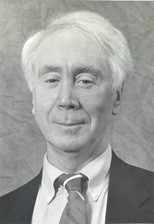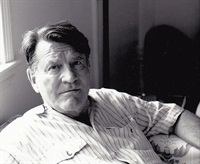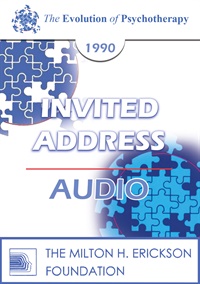EP90 Invited Address 03b - Clinical / Therapeutic Effectiveness: Banning the Procrustean Bed and Challenging Ten Prevalent Myths - Arnold Lazarus, PhD
- Average Rating:
- Not yet rated
- Topic Areas:
- Invited Addresses | Panic | Psychotherapy | Therapist Development
- Categories:
- Evolution of Psychotherapy | Evolution of Psychotherapy 1990
- Faculty:
- Arnold Lazarus, Ph.D. | Jay Haley, MA
- Duration:
- 1 Hour 11 Minutes
- Format:
- Audio Only
- Original Program Date:
- Dec 13, 1990
- License:
- Never Expires.
Description
Description:
Ten myths, some contradictory, some interconnected, are outlined, followed by a fairly detailed exposition and rebuttal. The treatment of a young man with panic disorder is discussed as an exemplar of the need to apply data-based treatments of choice within the context of clinical artistry. Technical eclecticism is defined and is offered as a possible solution to many common misconceptions.
Educational Objectives:
- To underscore specific treatments of choice for several dysfunctions.
- To emphasize the relationship between theory and technique selection.
- To document specific clinical/therapeutic contraindications.
*Sessions may be edited for content and to preserve confidentiality*
Credits
Handouts
| Timestamped Transcript (896.8 KB) | 20 Pages | Available after Purchase |
| Ericksonian Learning Snapshot (249.4 KB) | 2 Pages | Available after Purchase |
Faculty

Arnold Lazarus, Ph.D. Related Seminars and Products
Arnold A. Lazarus, Ph.D., was Distinguished Professor at the Graduate School of Applied and Professional Psychology at Rutgers University. Lazarus served on the editorial boards of ten professional journals. He was president of the Association for Advancement of Behavior Therapy and received the Distinguished Service to The Profession of Psychology Award from the American Board of Professional Psychology. His Ph.D. was granted in 1960 from the University of the Witwatersrand, Johannesburg, South Africa. He has authored four books; co-authored, edited, or co-edited seven; and authoered or co-authoered more than 150 professional papers and chapters.

Jay Haley, MA Related Seminars and Products
Jay Haley (M.A., 1953, Stanford University) was Director of Family Therapy Institute of Washington, D.C. He was one of the leading exponents of the strategic/interpersonal approach to family therapy. Haley served as Director of the Family Experiment Project at the Mental Research Institute and as Director of Family Therapy Research at the Philadelphia Child Guidance Clinic. He has authoered seven books, co-authored two and edited five. Additionally, he has more than 40 contributions to professional journals and books. Haley is the former editor of Family Process, and the first recipient of the Lifetime Achievement Award of The Milton H. Erickson Foundation.


